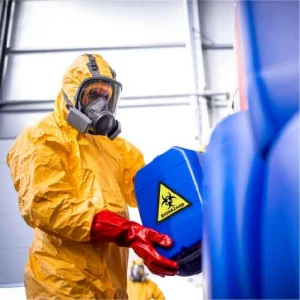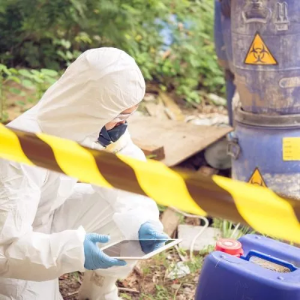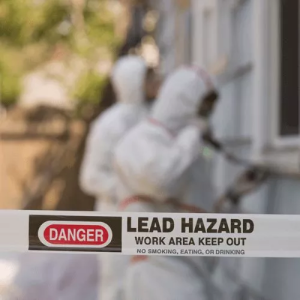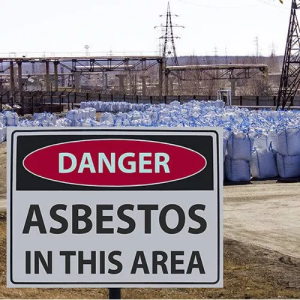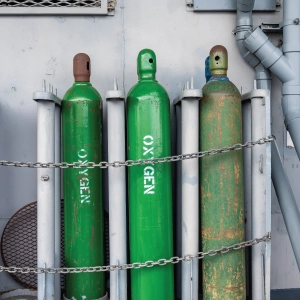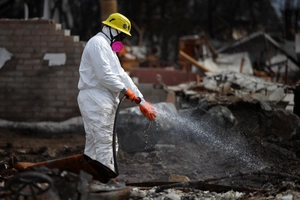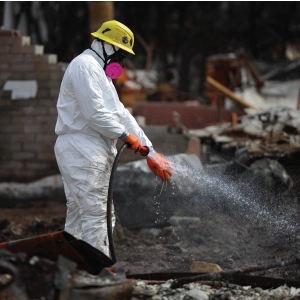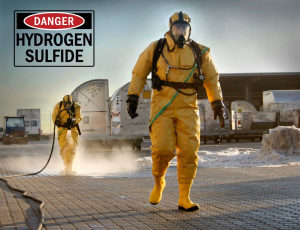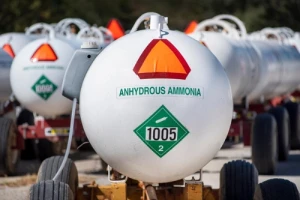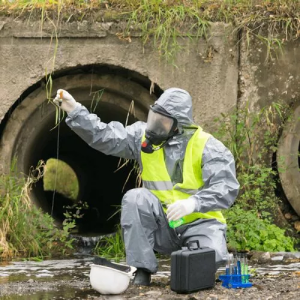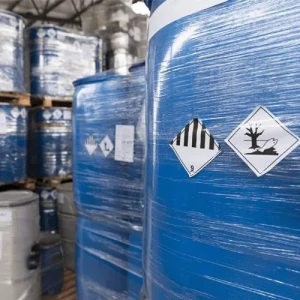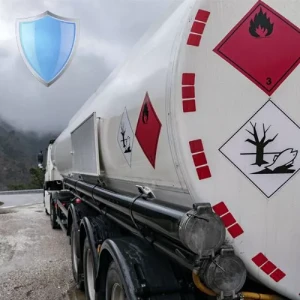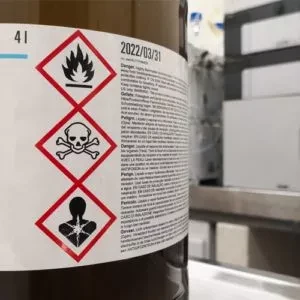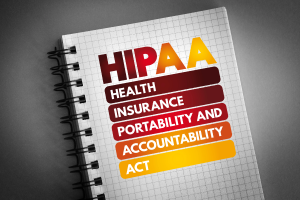OSHA Process Safety Management Training
- In accordance with Federal OSHA Regulations 29 CFR 1910.119
- Available in:
 English |
English |  Español
Español - Access your learning from any place, at any time, on any device
- Progress at your own pace with a mobile-friendly program
- Access your completion certificate the moment you finish
- Audio option lets you hear the course content
- Available as SCORM, on-demand online, virtual instructor-led, or in-person training
0.2
Bulk Buying
| Employee | Per Seat |
|---|---|
| 2-10 | $39.59 |
| 11-20 | $39.19 |
| 21-50 | $38.79 |
| 51-100 | $37.99 |
| 101-250 | $37.19 |
Course Facts
Training Duration
Learning Type
Course Access Validity
Device Support
Certificate Validity
Our OSHA Process Safety Management Training is developed in line with OSHA General Industry Standards 29 CFR 1910.119 for Process Safety Management of Highly Hazardous Chemicals. The OSHA PSM training takes a comprehensive approach to preventing catastrophic incidents in industries handling hazardous chemicals. This course guides the learner in understanding the critical elements of process safety management (PSM) to establish and maintain robust safety programs in facilities using various processes involving hazardous chemicals.
By exploring the historical context of industrial accidents, learners will understand the far-reaching consequences of process safety failures. The course explains the core components of a PSM system, including hazard identification, risk assessment, and control measures. Participants will learn to develop and implement effective operating procedures, process hazard analysis (PHA) techniques, contractor management strategies, and mechanical integrity programs. Additionally, the OSHA Process Safety Management Training course emphasizes the importance of emergency preparedness, incident investigation, and compliance auditing.
Who Needs OSHA PSM Training?
A PSM training course is invaluable for professionals working in industries with hazardous processes. This includes:
- Process industry professionals;
- Safety and environmental specialists;
- Maintenance and engineering personnel; and
- Contractors and subcontractors.
Essentially, anyone involved in the design, operation, maintenance, or oversight of processes involving hazardous chemicals can benefit from a deeper understanding of the OSHA PSM principles and practices.
OSHA Process Safety Management Training Course Syllabus
This OSHA Process Safety Management Training course consists of 6 lessons. Students are required to take each lesson in sequential order as listed below.
Introduction
Lesson 1: Introduction to Process Safety Management
Process safety management (PSM) is a systematic approach to preventing catastrophic accidents involving hazardous chemicals. This lesson introduces the concept, its importance, and its foundational elements. It explores the industries subject to PSM regulations and delves into the core components of a comprehensive PSM program.
Lesson 2: Process Safety Information
This lesson will introduce the concept of PSI and its vital role in ensuring process safety. The lesson explores how PSI serves as a detailed blueprint of a chemical process, outlining potential hazards and providing essential information for managing risks. It explained the key components of PSI, identifies its stakeholders, and recognizes the significance of chemical information in safeguarding processes and operations in facilities.
Lesson 3: Process Hazard Analysis
This lesson highlights the critical importance of process hazard analysis (PHA) in preventing catastrophic incidents within industries handling hazardous materials. It explores how PHA systematically identifies, assesses, and controls potential hazards. By examining various PHA methodologies, including What-If Analysis, Checklist Analysis, Hazard and Operability Study, Failure Mode and Effect Analysis, and Fault Tree Analysis, the lesson provides a framework for minimizing risk and preventing catastrophic incidents.
Lesson 4: Operating Procedures
This lesson highlights the importance of creating comprehensive operating procedures as required by OSHA’s Process Safety Management standard. It covers essential elements, including operating phases, limits, and safety and health considerations. The lesson emphasizes the need for consistency with process safety information, and clear, accurate, and regularly reviewed procedures to ensure safe operations.
Lesson 5: Quality Assurance and Inspection
This lesson explains the critical role of meticulous inspection in chemical process facilities. It explores the importance of thorough contractor screening, pre-startup safety reviews, mechanical integrity programs, hot work permits, and management of change (MOC). By understanding these elements, facilities can significantly enhance safety and operational efficiency while working with contractors.
Lesson 6: Incident Investigation and Emergency Preparedness
This lesson breaks down the essential components of incident investigation, emergency planning, and compliance audits within the framework of Process Safety Management as per OSHA Standards. It explores the critical steps involved in incident investigation, including team composition, report generation, and corrective actions. Additionally, it emphasizes the importance of comprehensive emergency action plans and the role of compliance audits in maintaining a safe operating environment.
Final Examination
Frequently Asked Questions
This OSHA Process Safety Management program is developed to meet the needs of OSHA Standards for preventing catastrophic accidents, protecting human life, and safeguarding the environment when using highly hazardous chemicals in various manufacturing and other processes.
By understanding and implementing PSM principles, facilities can significantly reduce the risk of incidents involving hazardous chemicals. This training equips employees with the knowledge and skills to identify, assess, and control hazards, ultimately fostering a strong safety culture within the workplace.
A process safety management (PSM) training program is invaluable for professionals working in industries with processes that involve hazardous chemicals. This includes:
- Process industry professionals;
- Safety and environmental specialists;
- Maintenance and engineering personnel; and
- Contractors and subcontractors.
Essentially, anyone involved in the design, operation, maintenance, or oversight of processes involving highly hazardous chemicals can benefit from a deeper understanding of PSM principles and practices.
COURSE OBJECTIVES
Course Objectives – OSHA Process Safety Management Training
- Define and explain the role of Process Safety Management (PSM) in preventing hazardous chemical incidents.
- Examine historical case studies to understand the critical importance of PSM.
- Outline the essential elements of a PSM program.
- Explain how to document and visually represent process equipment information.
- Understand the concept of process safety information (PSI) and its importance in PSM.
- Explain the role of different types of process diagrams used in PSI.
- Recognize the significance of chemical information, including SDS and hazard data, in process safety.
- Understand the purpose and methods of Process Hazard Analysis (PHA) in risk assessment.
- Describe different PHA methodologies and their application.
- Highlight the significance of clear operating procedures for process safety.
- Evaluate the importance of rigorous contractor screening.
- Explain the role of pre-startup safety checks in preventing incidents.
- Understand the concept of mechanical integrity and its implementation.
- Describe the purpose and process of hot work permits.
- Explain how to manage changes in processes to mitigate risks.
- Discuss the importance of incident investigation in improving safety.
- Explain how incident reports contribute to a strong safety culture.
- Outline the essential components of an emergency response plan.
- Understand the role of compliance audits in maintaining PSM effectiveness.
- Explain the handling of confidential information and trade secrets within PSM.
Choose Your Ideal Training Format:



Virtual Instructor-Led
$199.00/Seat (minimum 10 seats)

Client-Site In-Person
$750.00/Seat (minimum 10 seats)
The incident investigation module was eye-opening. The course highlighted the critical steps involved in conducting a thorough investigation and learning from past mistakes. This knowledge will be instrumental in preventing future accidents.
The course provided a clear and concise overview of PSM requirements. The emphasis on contractor management and mechanical integrity was especially helpful. I'm now better equipped to evaluate and manage contractor safety on our projects.
As a maintenance supervisor, I found the mechanical integrity section invaluable. The course emphasized the importance of regular inspections and maintenance, which will undoubtedly improve the reliability of our equipment and reduce the risk of failures.
As a process engineer, I was looking to enhance my understanding of process safety. This course surely met my expectations. The in-depth exploration of PHA methodologies and incident investigation techniques was particularly insightful. I'm confident that the knowledge gained will help me identify and mitigate risks more effectively.
The ROI of Online Safety Training
Discover the value of our efficient alternative to live training, and calculate your return on investment.


Recommended Courses






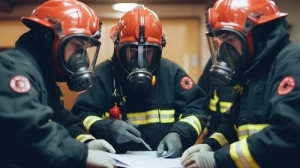










For Corporate Orders and Inquiries please reach out to our sales team at (310) 498-0546
By signing up you agree to receive marketing emails.
Be assured we will never spam you!

 EN |
EN |  ES
ES





